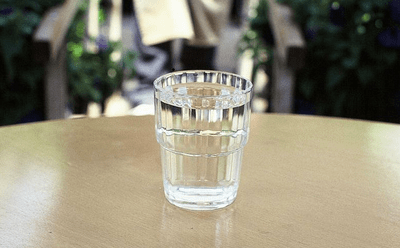Advertisement
Study In Mice: Fasting May Help Chemo Work

By Karen Weintraub
Guest Contributor
A study out today suggests that fasting for a few days at a time may help cancer patients better tolerate chemotherapy, and may even be an effective treatment.
Although the findings are still quite preliminary – the only solid research is in mice – cancer patient Marie Pechet says the study is provocative enough to spur a conversation with her doctor.
“I’d give it shot, I definitely would,” she said earlier today.
The scientist who led the research, Valter Longo, a professor of gerontology at the University of Southern California, advises patients to check with their doctor before attempting to fast. Going without food can be dangerous, particularly for people with diabetes, heart disease and other ailments, he warned.
But he’s bullish enough about the idea of fasting that he does it himself several days a month.
Today’s study, Longo’s second on the subject, looks at mice who were allowed no food or drink except water before and after getting chemotherapy.
Amazingly, up to 40 percent of the mice who fasted during treatment were actually cured of the cancer, as far as researchers could tell – compared to a zero cure rate for chemo alone.
The fasting regimen is now being tried in patients in California, Longo said, with some results due later this year. Two years ago, Longo and his colleagues published a study in the journal Aging, reviewing 10 cancer patients who had tried fasting on their own. The patients all reported fewer side effects from chemo.
The idea behind fasting is that normal cells are used to being deprived of energy – after all, you’ve probably skipped a few meals in your day. But fast-growing cancer cells haven’t gotten used to such deprivation and so are weakened more than healthy cells. That makes them more vulnerable to chemotherapy, Longo says. And it also may make them more vulnerable to the body simply cleaning up and clearing them away.
At least that’s how it seems to be working in cancerous mice deprived of food both before and after chemo sessions, and when their tumor is not being treated.
There is enough indication in mice to suggest that people getting chemo would need to fast for 86 hours – 62 before treatment and 24 after – to get a hopefully similar biological response as the mice, he said. The current study at USC will help show whether that response is enough to combat cancer.
It would be impossible, Longo says, to test fasting with every cancer drug and every type of tumor, but so far, his research suggests that fasting helps fight a broad spectrum of cancers. Among the 10 patients in his previous study, four had breast cancer, two prostate cancer, and one each had lung, ovarian, esophageal and uterine tumors.
There is some indication, he said, that fasting might be beneficial to cancer patients who aren’t in chemo – and maybe to everyone else as well.
Longo, who says he skips lunch every day and avoids food for a few days “every once in a while,” suggests that that pattern might help us all stay healthy longer. He’s got a paper on that subject due out in about six months, he said.
After hearing complaints from people who found fasting too hard or too dangerous, Longo has started a company, L-nutra, to sell food designed to have the same effect as fasting. Some of the products should be available later this year, though their effectiveness won’t be proven for some time, Longo says. And it’ll always be free to simply skip meals.
Marie Pechet says she’s already seen the power of diet in her own cancer treatment – so she’s very willing to believe Longo’s research. A “normal Cambridge eater,” Pechet went vegan when hit with colon cancer four years ago, and later tried an all-raw diet for 18 months. When she first started the raw diet, she hid it from her doctors for the first week, and beamed when they asked her why her blood numbers had suddenly improved so much. Stomach trouble forced her to give up the all-raw diet a few months ago, but now she says she’s ready to give fasting a try if her doctor gives her the thumbs up.
Matthew Vander Heiden, an oncologist at the Dana-Farber Cancer Institute and a cancer researcher at the Koch institute at MIT, is naturally a bit more skeptical. Longo’s research, he says, is “a little bit on the edges of the mainstream.”
It has long been clear, Vander Heiden says, that cancer cells use glucose differently than healthy cells. But he’s not convinced people can control that by skipping a few meals.
“We don’t understand well enough how diet influences whole-body metabolism or how whole-body metabolism influences cancer growth,” says Vander Heiden, whose lab is dedicated to learning more about that process. “To try to give people blanket recommendations is hard to do.”
He says he tells his patients there’s no clear data suggesting that one diet is better than another – though of course a healthy diet is preferable, because “the last thing you want to do is be cured from your cancer and have a heart attack.”
If fasting or limiting your diet makes you feel more in control of your cancer, go for it, he tells them.
Readers,what about you? Even if you’re healthy, are you willing to consider skipping food a few days a month? Or would you rather wait for more data before making such a major a sacrifice?
Karen Weintraub, a freelance health and science writer, is a frequent contributor to CommonHealth.
This program aired on February 8, 2012. The audio for this program is not available.

